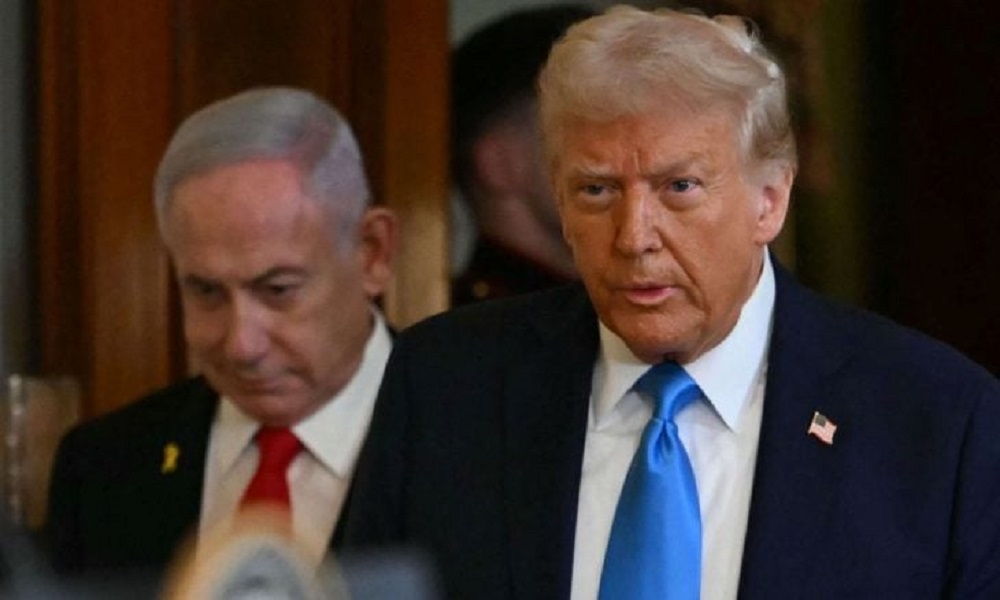Watan-This is a dramatic moment in the Middle East, both in terms of pace and change. Since the Gulf War, the region hasn’t seen such transformative moves. Trump is rebuilding U.S. alliances, resolving old disputes, and projecting a peace-making image, especially in the Middle East.
Israel, however, now plays a marginal role. Trump offers a superficial deal to end the Gaza war, but Netanyahu resists, fearing a forced agreement. There’s even concern the U.S. might abandon Israel or that Netanyahu might sabotage the plan militarily, in Gaza or Iran.
In late Trump’s second term, during his Gulf tour, he announced over $1 trillion in deals. He’s also pushing for a new Iran nuclear deal—despite low familiarity with the details. Ending the Gaza war and completing the hostage deal requires Israeli involvement.
Trump visited Saudi Arabia, the UAE, and Qatar—receiving lavish praise. Syrian leader Ahmad Sharaa was even invited, signaling a U.S. shift. Sharaa received a U.S. pledge to lift sanctions and was praised as “charismatic,” no longer labeled a jihadist.
Trump hinted at resuming F-35 sales to Turkey and Saudi Arabia—raising alarm in Israel, where maintaining regional military superiority has long been policy.
Meanwhile, Netanyahu is absent from the stage. Before the Gaza massacre in October 2023, he was focused on Saudi normalization, hoping it would sideline the Palestinian issue. Hamas, according to interviews, attacked partly to derail that deal.
Today, normalization is off the table. Even the Saudi royal family must heed public outrage over Gaza atrocities. Trump appears willing to bypass Congress to fulfill Saudi demands—regardless of Israel.
In Gaza, talks oscillate between a comprehensive deal and a temporary ceasefire (“Witkoff Plan”) that includes releasing half the living hostages and several bodies during a 45–70 day truce. Washington hinted to mediators—and to Hamas—that it hopes Netanyahu will be removed or sidelined.
A larger regional plan could include an Arab peacekeeping force in Gaza, with the PA in a symbolic role. But uncertainties remain: Will Hamas surrender its final hostages? Accept disarmament or exile of leaders? Agree to power-sharing in Gaza? All of this remains unclear.
Meanwhile, relations between Trump and Netanyahu are reportedly strained. The dismissal of National Security Advisor Michael Waltz cut off Netanyahu’s main communication line. Reports suggest Trump reassigned Waltz after learning Netanyahu was using him on Iran.
Israel, once seen as highly influential during Trump’s first term, is now sidelined. Netanyahu may settle for a partial deal to keep his fragile coalition together. The Israeli media, meanwhile, attacked the family of freed soldier Edan Alexander for not thanking Netanyahu—despite his lack of involvement in the rescue.
